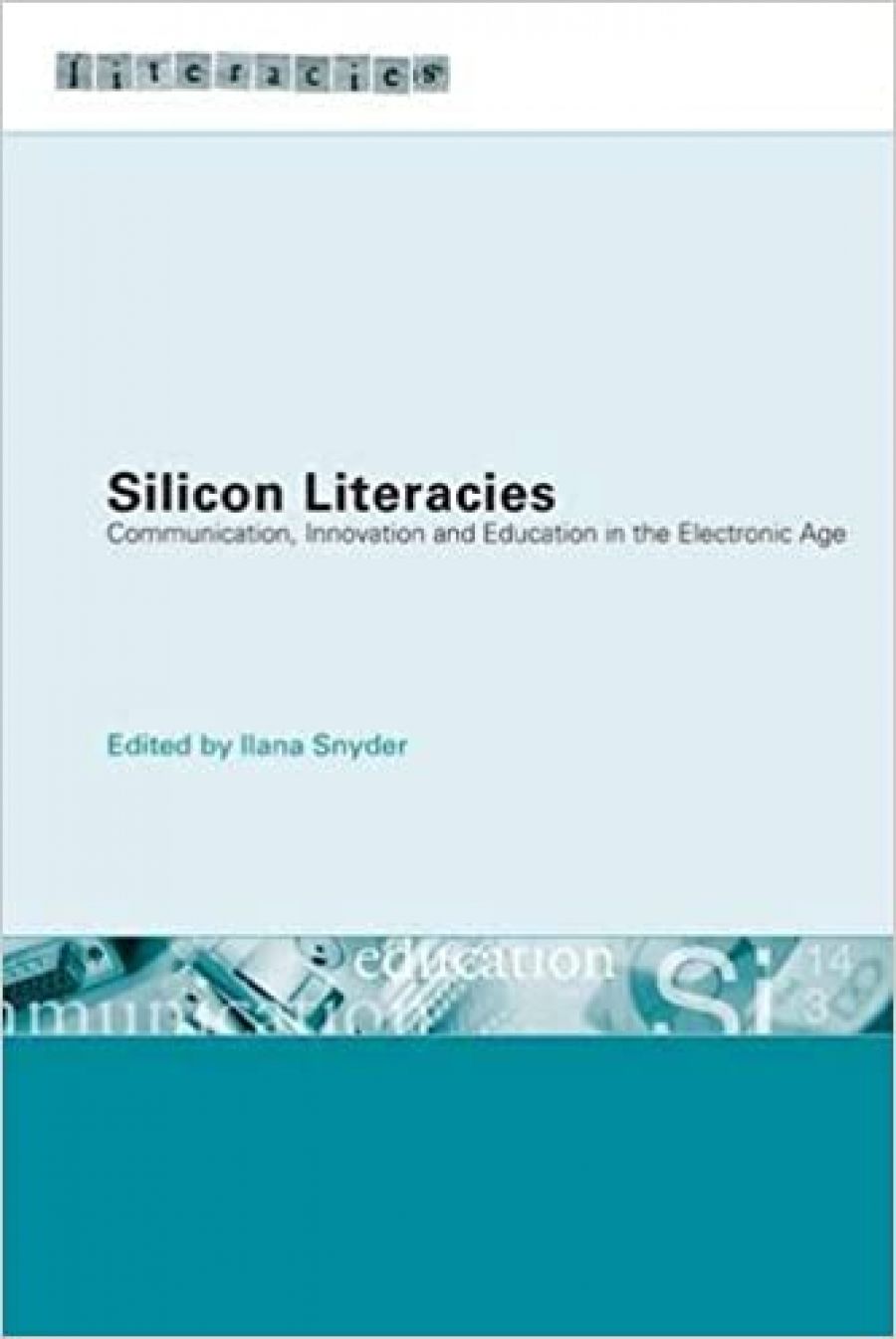
- Free Article: No
- Contents Category: Education
- Review Article: Yes
- Online Only: No
- Custom Highlight Text:
Although the World Wide Web was begun in 1990, it didn’t really get going in a big way until 1994, with the First International World Wide Web conference held at CERN in Switzerland. That was less than a decade ago. And that should give us pause. Think how important the Web has become in those few years. Consider, too, what sort of computer you were using in 1994 and compare it to what you deploy now (assuming you’re not a holdout). No pause there. It’s been an ongoing vertical projection that is no doubt just the beginning of an enormous change that will affect almost every aspect of our lives. Of course, we’ve heard this technological refrain over and over (with various apocalyptic shadings), and we probably believe it to be true. Still, we’re not likely to get excited about it. We’ll deal with it when it comes. In many instances, it’s already here, but we haven’t fully noticed. In part we’ve simply accustomed ourselves to some of the demands of a ubiquitous silicon-based technology, and in part we’ve remained unaware of what’s headed our way in the form of a techno-savvy younger generation. We seldom see into the future because we usually look in the wrong direction: the future’s not ahead, it’s behind us, and it’s coming up fast.
- Book 1 Title: Silicon Literacies
- Book 1 Subtitle: Communication, Innovation and Education in the Electronic Age
- Book 1 Biblio: Routledge, $56 pb, 190 pp, 0 415 27668 3
Thankfully, there are people who concern themselves with the future impact of what’s happening now. Some of those people have written essays for this volume, Silicon Literacies, ably edited and introduced by Ilana Snyder, from Monash University. The book casts a wide net – if you will – and comes up with a diverse set of findings about what constitutes ‘literacy’ in a screen-based technological world; what the effects of this new literacy are; and what some of its implications might be. Literacy here involves not just traditional notions of reading and writing but is expanded to include proficiency in the whole semiotic system that governs our use of the computer: words, graphics, pictures, sounds. Once we grasp what this new literacy entails, it is clear that ICTs (the buzz acronym for ‘information and communication technologies’) are not neutral, value-free utilitarian tools; they are themselves powerful shapers of education, identity and culture. Thus, Silicon Literacies is particularly concerned with issues of education and pedagogy, not least because many educators ‘are not fully literate themselves in the use of these new technologies’.
The book is divided into two parts: the first contains essays on ‘Online literacy and rhetorical practices’ (‘rhetoric’, by the way, has found new life in communication theory); the second, looks at ‘Teaching, learning, technology and innovation’. As the categories suggest, the essays are wide-ranging, though, on the face of it, the contributors are not: they are all educators working in universities. Accordingly, Silicon Literacies has the full academic accoutrement of notes and references (it is, in fact, one of a series of books on literacy published by Routledge).
However, this is not a fusty volume by any means. The essays are lively and provocative, and it’s clear that the writers are themselves innovators. Some are familiar names from the realm of hypertext: George Landow, originally from Brown University, where he pioneered hypertext educational webs; Michael Joyce from Vassar College, whose afternoon (1989) is the ‘granddaddy of hypertext fiction’; J. Yellowlees Douglas, a hypertext theorist and writer from Florida; and Snyder herself, whose Hypertext: The Electronic Labyrinth (1997) proved a lucid guide. The other nine contributors come from Australia, Canada, Mexico, the United Kingdom, and the United States. They all write with the authority of those who have worked extensively with electronic media in teaching, which is the primary ground for their research.
This does not mean they limit their frames of reference to the schoolroom. Michele Knobel and Colin Lankshear investigate the way eBay.com socialises its users through a ratings feedback system that rewards ethical behaviour, turning it into a kind of currency that both buyers and sellers are eager to accumulate. Catherine Beavis analyses the role that fantasy computer games can play in developing narrative skills in young students – with the paradoxical discovery that ‘good’ (i.e. print-oriented) students are often at a disadvantage vis-à-vis ‘poor’ (i.e. disengaged) students who prefer video games to books. Some essays are drier than others, and some more theoretically inclined, but all the writers seem keenly aware that they are working in a field that is governed by the optative mood, where the desire is not for change (that’s a given) but for change that is desirable. Educators, one suspects, are born optimists.
In her Introduction, Snyder writes: ‘Education is at a crossroad.’ This is surely true, but it seems that education is always at a crossroad and that the classical patron of crossroads, the god Hermes, is the appropriate figure, since he is also identified with interpretation (hermeneutics) and with lies. But perhaps the better figure here is Oedipus, who meets and kills his father, Laius, at a crossroad: education often resembles an inter-generational struggle, as one generation attempts to instruct another about what is important in the world. I wouldn’t want to push the analogy too far, but we might wonder what happens if technology begins to drive education to the point that students are more knowledgeable – more literate – than the teachers. When does education become less about knowledge, and more about authority?


Comments powered by CComment